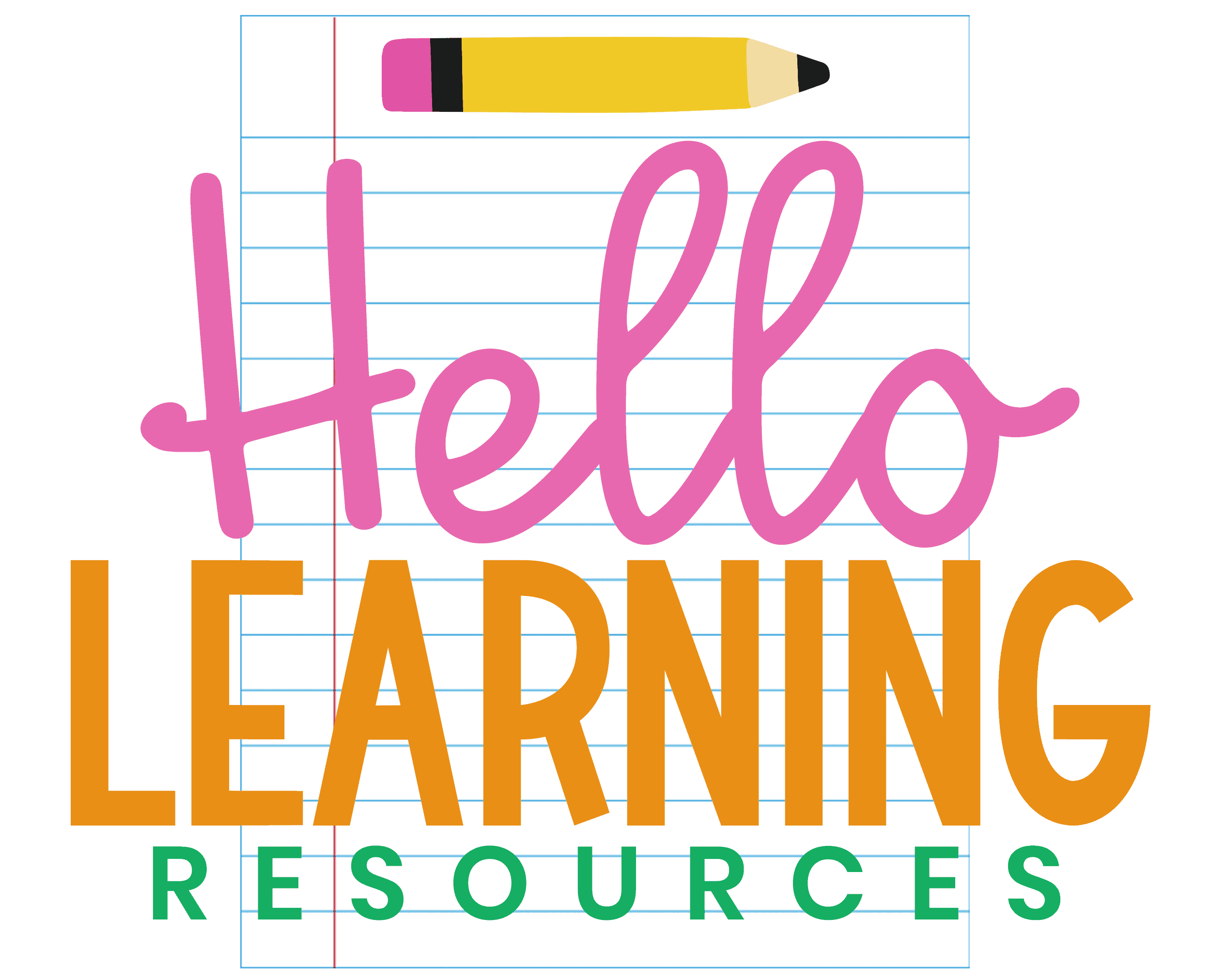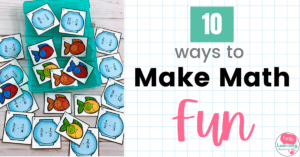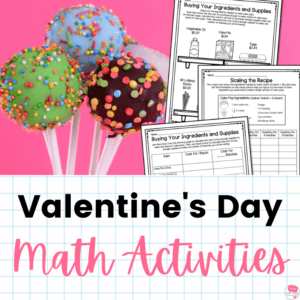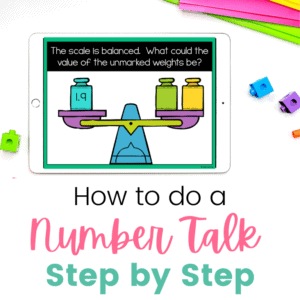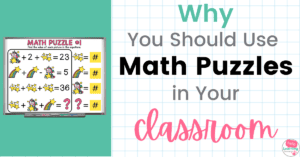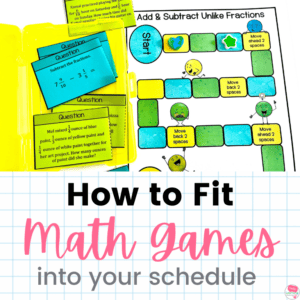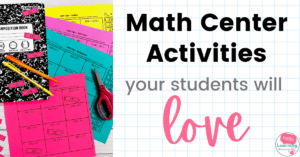How to Promote Independent Learning in Math Centers
Are your students having difficulty with independent learning activities during math center time?
Wouldn’t it be great if you could work with small groups or individual students during math center time without having to worry about what is going on in your math centers?
Here are some of the strategies that I have used to help promote independent learning in math centers in the classroom.
Familiar Activities
By using familiar activities or activities that practice different skills but follow a similar format, students can focus on the content of the activity. This means they will not have to waste time trying to figure out how to do the activity and can get right to work.
As time goes on through the year, they will become more and more comfortable with the activities and procedures.
When students know exactly what to do, they will have fewer opportunities to get off task. They will also have less of a need to ask you questions about how to do the math center activity.
Providing familiar activities, structures or formats in your math centers will help promote independent learning.

Practice Routines for Independent Learning
I recommend providing a lot of practice with math center routines and expectations, especially when you are beginning math centers with a new group of students.
It is also important to give students practice with how to do different math center activities before expecting them to complete the activity independently.
Before putting a game in a math center, play it a few times as a whole class. Everyone plays the same game in partners or groups, and you can observe and answer questions when needed.
If you plan to put a new activity in your math centers, give directions and practice the activity as a whole class. This allows students to see exactly how to complete the activity and what is expected.
Practicing routines and activities before releasing them into student math centers will help promote independent learning when they are doing the activity on their own.
Independent Learning Choices
Giving students choice in math centers can help build independent learning in students. Having choices releases some of the responsibility of decision making to the student.
I suggest starting small by allowing students a choice in which center they will start with or a choice of two different activities to practice a specific skill.
As you build student independence in making choices, you can build in more options for students to make more choices during math centers.
Independent learning is more likely to happen when students have choices and some control of their learning.

Clear Directions and Expectations
Students who know exactly what the expectations are for an activity, where to get materials, and how to clean it up, are more likely to be engaged in independent learning.
Having clearly written directions, with photos or labels if needed, will be helpful for many learners.
Having clear expectations for how to get supplies, use the supplies, and clean up math materials, puts the responsibility onto students to be independent.
The more clear and direct you can be about directions and expectations, the more you will promote independent learning in math centers.
Self Checking Activities
Self-checking activities are a great way to promote independent learning in math centers.
There are many types of self-checking activities to choose from.
Try using games that have the answers on the back of the question cards. While one player solves the question, the other player can check their answer.
Other self-checking options include
- matching puzzles
- matching practice pages or math sorts
- practice sheets with an answer bank
- digital self-checking activities
- QR codes
- providing answer keys so students can self-check their work.
Independent learning is more likely when students can self-correct and do not need to ask you to correct all of their math center work.

Predictable Structure
Kids like structure and routines. Having structure and routines in math centers is very important to encourage independent learning.
It doesn’t matter what math center structure you choose, but try to keep the activities, schedule, and expectations consistent.
When kids know exactly what they are expected to do, and how to do it, they are more likely to work independently.
Accountability
It is important to hold students accountable for the work they complete during math center time.
Making them responsible for accounting for their work helps them to build decision-making and work habit skills. It also builds independent learning behaviors as they take control of managing their learning.
Accountability can take many forms. You may need to try a few ideas to see what works best for your class.
Some possible ways to hold students accountable for their math center work include:
- exit slips
- Google Form surveys
- a weekly math center checklist
- sharing at the end of each day
- daily or weekly math center reflections
- individual accountability pieces in each math center (recording sheets or forms) that get turned in
You may need to start off the year with more accountability structures, as students get used to what independent learning is expected to look like.
As the year progresses, you may be able to change the amount of accountability you feel is needed for your students.

Building independent learning skills in students during math centers is beneficial to everyone in the classroom, and in all areas of learning.
Students will get more work done.
Students will do higher-quality work.
Students will take ownership and pride in their learning.
You will be able to meet with small groups or individual students with fewer interruptions!
Would you like to try some of the resources pictured in this post? Use the links below to grab some freebies to use in your classroom!

CLICK HERE for a FREE multiplication math game
CLICK HERE for a FREE set of question/answer matching math practice sheets

